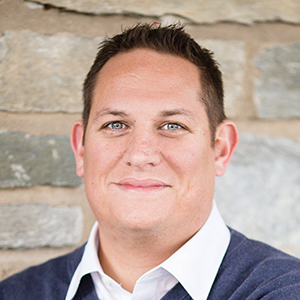Creative thinking necessary to change culture
Francis S. Collins, director of the National Institutes of Health, announced in a statement last week that he will no longer participate in panels that are not diverse. Collins noted that women and members of underrepresented groups are “conspicuously missing” from high-level speaker slots and said that it is “time to end the tradition in science of all-male speaking panels, sometimes wryly referred to as ‘manels.’”
This move by Collins was clever. He used his platform as the leader of the world’s largest funder of biomedical research to make clear where he stands on a frustrating and antiquated problem.
Though his announcement was only a personal vow, it’s reasonable to assume that he has, in making said vow publicly, influenced how scientific conferences will operate going forward. No rule changes, months of working group deliberations or congressional prodding were needed. Just a blog post.
It’s time for NIH to do equally creative thinking when it comes to another longstanding problem in the life science community: sexual harassment.
In the same week as the no-manels announcement, the Advisory Committee to the Director heard from its working group assigned with changing the culture to prevent sexual harassment.
The working group presented tentative recommendations that seek to raise the seriousness with which professional misconduct is treated, improve reporting of violations, provide restorative justice for victims and rebalance the trainer–trainee power structure. Serious work went into identifying these areas of concern and developing the recommendations. However, the working group seems limited by its members’ imaginations.
The group frequently cited legal and statutory limitations that must be considered before it can make formal recommendations. These limitations also have been cited by NIH leadership as an explanation for its slow response to what many consider a crisis.
NIH should be looking for more creative ways to use its $40 billion-a-year budget as leverage over researchers and research institutions.
Formal rule changes and legislative fixes are long, frustrating and tedious ways to change culture, especially in institutions over which the NIH has no legal authority.
Yet, if the NIH leadership allows itself to think outside of the box, they might find that there is a variety of ways to change the culture swiftly.
No more manels is a great start. We look forward to seeing what’s next.
Update: Walter Koroshetz, director of the National Institute of Neurological Disorders and Stroke released a statement on June 20 stating that he would not participate in manels. John Lorsch, director of the National Institute of General Medical Sciences followed suit with his own statement on June 25, saying that neither he nor any members of NIGMS staff would attend conferences or meetings where “attention to inclusiveness is not evident.”
Enjoy reading ASBMB Today?
Become a member to receive the print edition four times a year and the digital edition monthly.
Learn moreGet the latest from ASBMB Today
Enter your email address, and we’ll send you a weekly email with recent articles, interviews and more.
Latest in Policy
Policy highlights or most popular articles

Women’s health cannot leave rare diseases behind
A physician living with lymphangioleiomyomatosis and a basic scientist explain why patient-driven, trial-ready research is essential to turning momentum into meaningful progress.

Building a stronger future for research funding
Hear from Eric Gascho of the Coalition for Health Funding about federal public health investments, the value of collaboration and how scientists can help shape the future of research funding.

Councilors advocate for science on Capitol Hill
ASBMB Councilors meet with their elected officials to advocate for basic scientific research funding and training the next generation of scientists.

Hope for a cure hangs on research
Amid drastic proposed cuts to biomedical research, rare disease families like Hailey Adkisson’s fight for survival and hope. Without funding, science can’t “catch up” to help the patients who need it most.

Supporting science through advocacy and community building
ASBMB calls on scientists to take action as funding cuts and policy shifts threaten the U.S. research enterprise, emphasizing the power of community advocacy and persistence in protecting the future of science.

Seven steps to advocating in your home state
Find out how to schedule, prepare for and conduct a productive district office meeting to communicate the importance of fundamental scientific research funding to your representatives.

